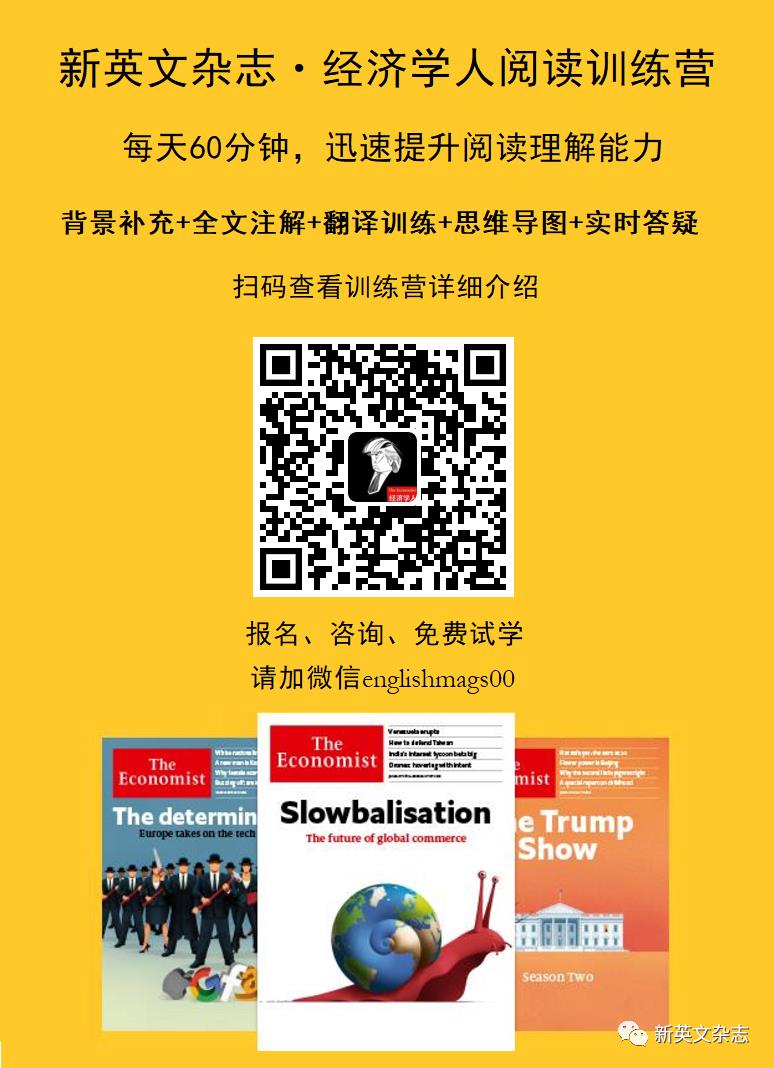WSJMicrosoft’s Talks to Buy TikTok Raise Ire in China
Posted 新英文杂志
tags:
篇首语:本文由小常识网(cha138.com)小编为大家整理,主要介绍了WSJMicrosoft’s Talks to Buy TikTok Raise Ire in China相关的知识,希望对你有一定的参考价值。
Washington’s push for Chinese company to sell American operations hardens suspicions in China that the U.S. aims to sabotage its technology
Only days after President Trump threatened to ban TikTok, Microsoft announced it is pushing ahead with plans to buy the U.S. operations of the hugely popular video-sharing platform. WSJ's Eva Xiao looks at what it means for China's hit internet export. Photo: Frank Hoermann/Sven Simon/Zuma Press
Washington’s ultimatum to the Chinese owner of TikTok—sell the app’s U.S. operations or leave the country—is hardening long-held suspicions in China that the U.S. aims to sabotage the country’s efforts to grow its technology, while raising concerns about the precedent it could set for Chinese companies with global ambitions as U.S.-China relations unravel.
After months in which TikTok owner Bytedance Ltd. fought to appease the Trump administration, Washington’s push for Bytedance to sell TikTok’s U.S. operations to Microsoft Corp. means China will likely lose control over its first true global internet sensation—one with ambitions of becoming a top-tier global technology giant—in its most important market.
Turning over the U.S. operations to Microsoft would also likely ripple across other Chinese internet companies that have harbored global aspirations, like Alibaba Group Holding Ltd. and Tencent Holdings Ltd., whose mobile app WeChat has been mentioned by top U.S. officials as a potential target.
In the eyes of Beijing’s leadership, Washington’s move to strong-arm one of its most valuable global tech companies into selling a lucrative overseas unit is further proof that the U.S. views any Chinese tech company with international success as a challenge to its technology primacy, regardless of the product or how it runs its business.
For much of the past two years, Washington’s national-security concerns revolved around Huawei Technologies Co., a Chinese telecom giant that the U.S. has tried to blacklist world-wide with increasing effectiveness.

Zhang Yiming, founder and CEO of Bytedance, is in talks to sell TikTok’s American operations to Microsoft. PHOTO: SHANNON STAPLETON/REUTERS
On Monday, Beijing—which has barred Silicon Valley’s biggest companies from gaining a foothold in China, saying they don’t adhere to Chinese law—slammed the U.S. move to force TikTok’s sale of its American unit as hypocritical, saying it reflected Washington’s double standards.
“Stop politicizing economic and trade issues, stop abusing the concept of national security and stop pursuing policies of discrimination and exclusion,” Chinese Foreign Ministry spokesman Wang Wenbin said at a regular briefing, in words aimed at Washington.
President Trump’s remark over the weekend that he was weighing an outright ban of TikTok in the U.S. sparked nationalist sentiments in China, where the Global Times, a Communist Party tabloid, derided the situation as “the hunting and looting of TikTok by the U.S. government in conjunction with U.S. high-tech companies.”
On Chinese social media, users likewise expressed outrage. Many on the Twitter -like Weibo platform accused the Trump administration of pandering to voters by stemming the rise of TikTok—and by extension, China.
On Douyin, Bytedance’s domestic analogue to TikTok, where videos commenting on a possible U.S. ban circulated widely, one popular comment suggested Huawei be allowed to buy Apple Inc.’s China operations.
Other Chinese social media users also aimed their ire at Zhang Yiming, Bytedance’s 37-year-old founder, for acquiescing to the pressure—a move that some Chinese commenters ridiculed as “kneeling” to Washington.
After a weekend in which confusion swirled around TikTok’s future in the U.S., Mr. Zhang told staff in a Monday afternoon letter that Bytedance was facing immense pressure overseas, and that despite the company’s attempts at convincing Washington that it could offer technical solutions to mitigate concerns, TikTok was still being asked to sell its U.S. operations.
“I hope everyone can maintain good morale amid the commotion and challenges,” Mr. Zhang wrote, saying that Bytedance’s desire to become a global company hasn’t changed. “Trust that the company can make good decisions in complex situations.”
Unlike other Chinese tech titans, which have largely struggled to expand globally while winning fans at home by cloning Western platforms, TikTok’s breakout success has been the product of its own innovation, said Matthew Brennan, a China-based tech consultant.
“TikTok was the moment when China technology went from ‘copy to China’ to ‘copy from China,’” he said. “Short video had first found more traction in China, and when Bytedance moved into the U.S. market, they were leading the big trend.”
Even as Bytedance negotiates to sell TikTok’s U.S. operations to Microsoft, it is looking at other ways to mitigate global concerns, including moving TikTok’s headquarters outside China. London has emerged as a front-runner, according to people familiar with the matter, with the decision close to being made, one of these people said.
Splitting TikTok’s overseas operations from its Chinese roots could prove nettlesome. Engineers would have to disentangle TikTok’s technical back end from its Chinese sister app Douyin, with which it shares some of the code used in its recommendation engine—the secret sauce that drives TikTok’s notoriously addictive video feed, according to people familiar with the company.
The two apps’ algorithms are handled by engineers in Beijing and Shanghai, these people said, and if Microsoft were to acquire TikTok’s U.S. operations, the algorithms would likely diverge over time, according to a person familiar with the company.
Banning TikTok from the U.S. would also have deep financial repercussions for Bytedance. Though the U.S. isn’t TikTok’s largest market by downloads—that would be India, which banned the app last month—the U.S. is among TikTok’s most lucrative and promising regions, where the app says it has 100 million users.
In a document shared with investors earlier in the year and viewed by The Wall Street Journal, Bytedance—which in addition to TikTok operates several other news and social media services—said it racked up 140 billion yuan ($20 billion) in sales last year, mostly from advertising. It expects to have revenue of 200 billion yuan this year.
Bytedance’s investors include Japanese investment giant SoftBank Group Corp., as well as U.S. investment firms General Atlantic and Sequoia Capital. In March, New York-based Tiger Global Management invested in Bytedance at a valuation of $100 billion to assist in the company’s path toward a U.S. initial public offering, according to people familiar with the company.
Even as Mr. Zhang has faced increasing pressure from all sides, he has maintained his belief that TikTok would come to rival Alphabet Inc.’s Google and Facebook Inc. as an online advertising juggernaut.
Besides TikTok, other Chinese tech companies could face the wrath of U.S. officials and encounter similar dilemmas. Senior U.S. officials including Secretary of State Mike Pompeo and White House trade adviser Peter Navarro recently threatened to ban WeChat, China’s popular do-everything mobile app.
Unlike TikTok, WeChat never gained much traction abroad. The app’s 244 million daily active overseas users are mostly Chinese and foreigners who need to engage with Chinese contacts for business or personal reasons.
Like TikTok, WeChat has been kicked out of India, its largest overseas market with 69 million users, following this year’s deadly skirmish on the China-India border. In the U.S., WeChat has 19 million users, according to app data tracker Apptopia.
Although any potential ban would inconvenience users, analysts say the impact on Tencent’s bottom line is minimal since it doesn’t rely on overseas users to earn money.
What’s more concerning is any long-term impact on Tencent’s global ambitions for its other operations in gaming, cloud services and financial services, they say.
“A potential ban of WeChat would sound the alarm for Tencent and make the company even more cautious about expanding its overseas businesses. It will rely more on local partners in doing businesses overseas,” said Shawn Yang, managing director of research and investment advisory firm Blue Lotus Capital Advisors. ▇
By Liza Lin, Jing Yang and Eva Xiao
——
Aug. 3, 2020 • 1665 words

声明:
©新英文杂志
新英文杂志
最优质英文资讯聚合平台
喜欢今天的内容吗?喜欢就点个“在看”吧⇣⇣
以上是关于WSJMicrosoft’s Talks to Buy TikTok Raise Ire in China的主要内容,如果未能解决你的问题,请参考以下文章
The happy secret to better work,https://www.ted.com/talks/shawn_achor_the_happy_secret_to_better_wor
There's more to life than being happy
There's more to life than being happy